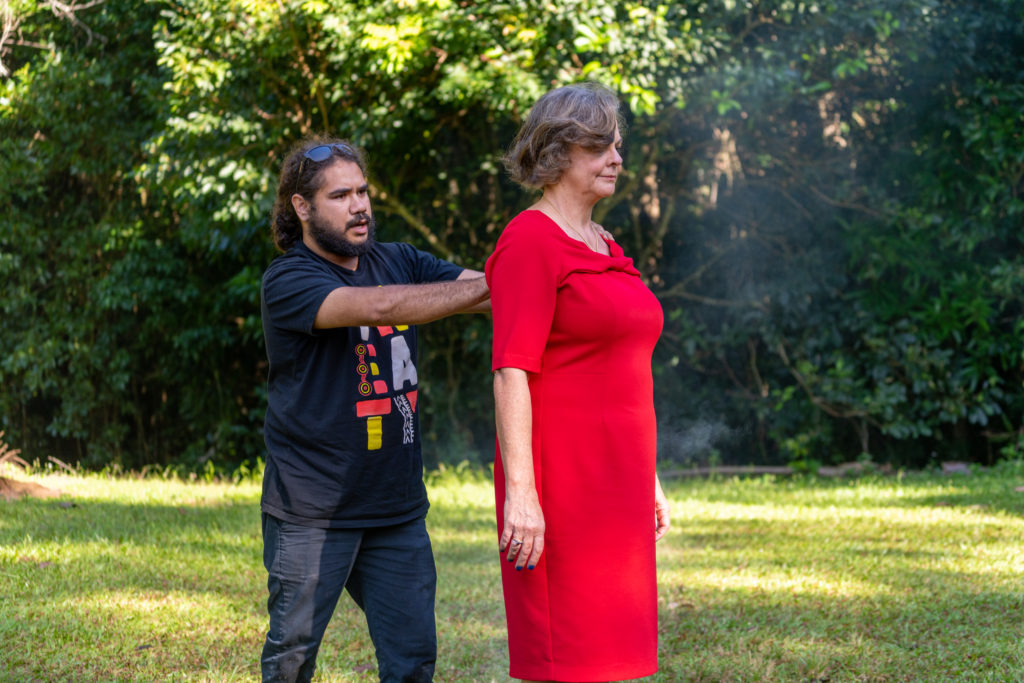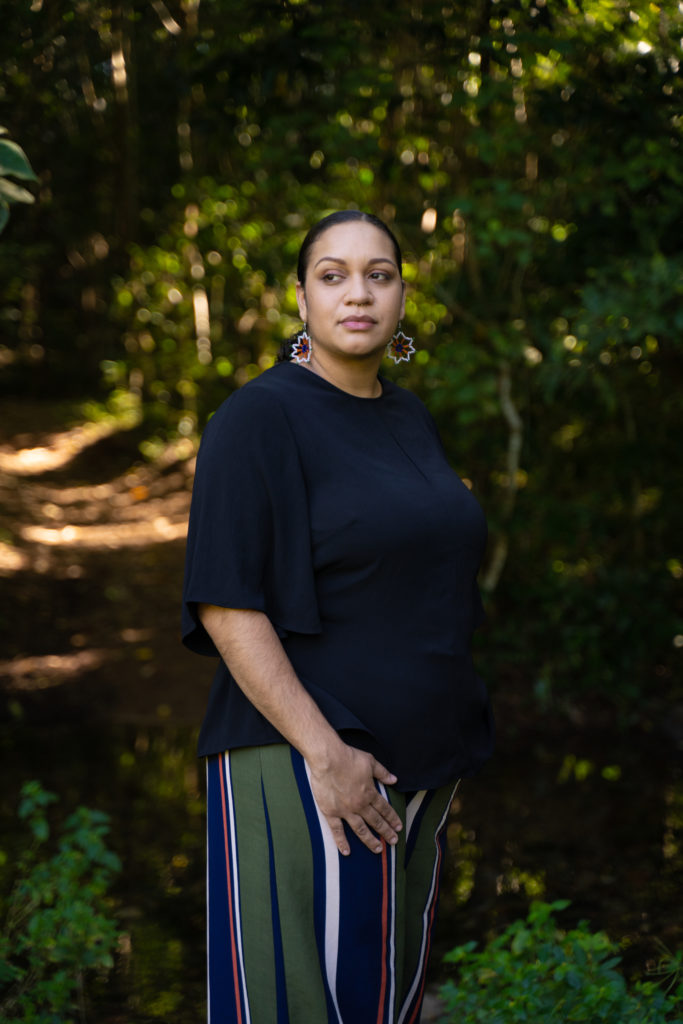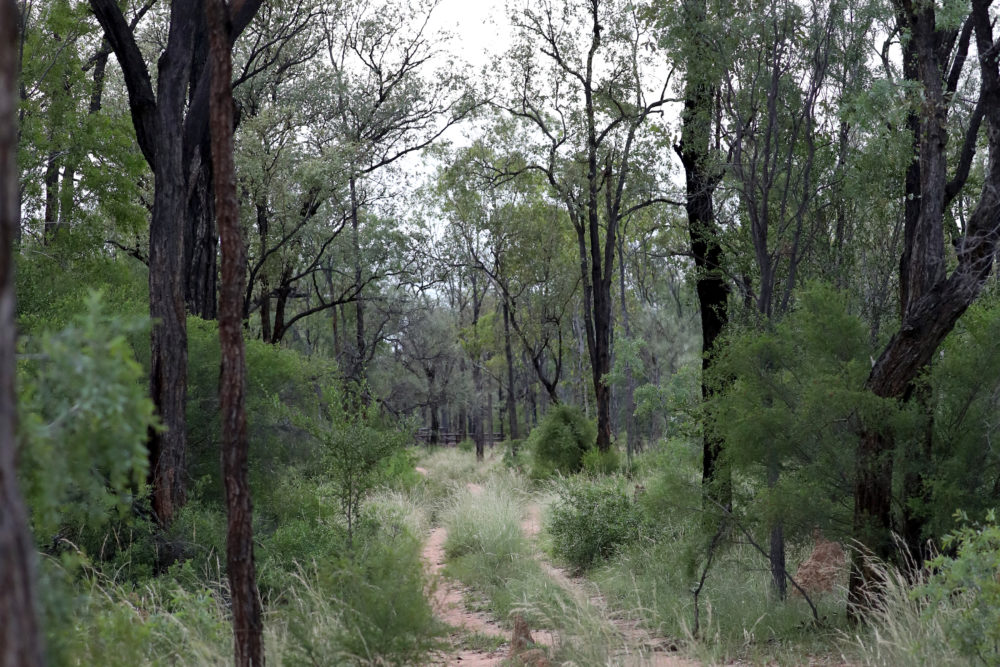On-Country evidence by First Nations people has been heard in the landmark challenge to Clive Palmer’s Galilee Coal Project by Youth Verdict and the Bimblebox Alliance.
It’s the first time in history the Queensland Land Court has heard First Nations evidence on- Country and in accordance with First Nations protocols.
On Tuesday, Yidinji Traditional Owner Jiritju Fourmile performed a welcome to Country and smoking ceremony near sacred sites at Isabella Falls before sharing cultural evidence at locations around Gimuy/Cairns, in Far North Queensland.
The Land Court saw flying fox camps that have been affected by heat stress and mangroves at risk from both soaring temperatures and sea level rise.
“Here we have our nutcracker rocks, down here,” Mr Fourmile told those gathered at the smoking ceremony, “and they will later be affected by climate change. We’re facing rising water levels, torrential downpours of rain that affects a lot of these places.”
Land Court President Fleur Kingham acknowledged country and thanked Mr Fourmile, “I also want to acknowledge that you’ve shown respect to the court in the way that you’ve welcomed us today and in complying with my request that you provide your statement about cultural knowledge in writing even though that’s not your preference,” President Kingham said. “The court is showing respect to you by coming here to hear from you in person, so you can tell me what you want to on- Country and you can show me what you say I need to consider in making this important decision.”

Previously, the court travelled to Zenadth Kes/ the Torres Strait and heard cultural evidence on the islands of Erub and Poruma. The court began by hearing evidence at the site where witness Athe Kapua Gutchen’s ancestor’s grave is being eroded by sea level rise.
The next day the parties went out on Sea Country and visited the nearby islands being eroded by rising seas, including Merad. On Merad some of the parties joined Athe Kapua planting seagrass. On the way back, the court inspected corals that have bleached.
On day three, Thursday, the court went to where Christianity first came to Zenadth Kes in 1871, known as the ‘Coming of the Light’, and the monument to this event which is now under threat from sea level rise.
On the final day, the Court travelled to Poruma with Aka Florence and Lala Gutchen. Poruma is the smallest inhabited island in Zenadth Kes. It is low-lying island and being eroded. The court received evidence of loss of culture and attempts to protect the island through sea walls.

Youth Verdict co-director and First Nations lead Murrawah Johnson said the on-Country hearings were hugely important.
“This case is the first time that First Nations cultural rights are being considered in the context of climate change and the impacts that climate has on the human rights of Aboriginal and Torres Strait Islander people in Queensland,” she said.
“If we’re successful in the court, we hope that this coal mine isn’t able to go ahead that’s proposed in central Queensland in the Galilee Basin, and also that First Nations rights are going to be more considered in the context of the approval of new coal mines.”
EDO Managing Lawyer Sean Ryan said, “It’s of the utmost importance that those whose human rights are already being impacted by the effects of climate change, have a say over proposed fossil fuel projects which will make that climate change even worse.”
Evidence in the case has now concluded, with closing arguments due to be heard in June and July.
The solicitor on record for this case is Alison Rose. EDO would like to thank barristers Saul Holt QC, Emrys Nekvapil, Kasey McAuliffe-Lake and Katherine Brown for their assistance.







